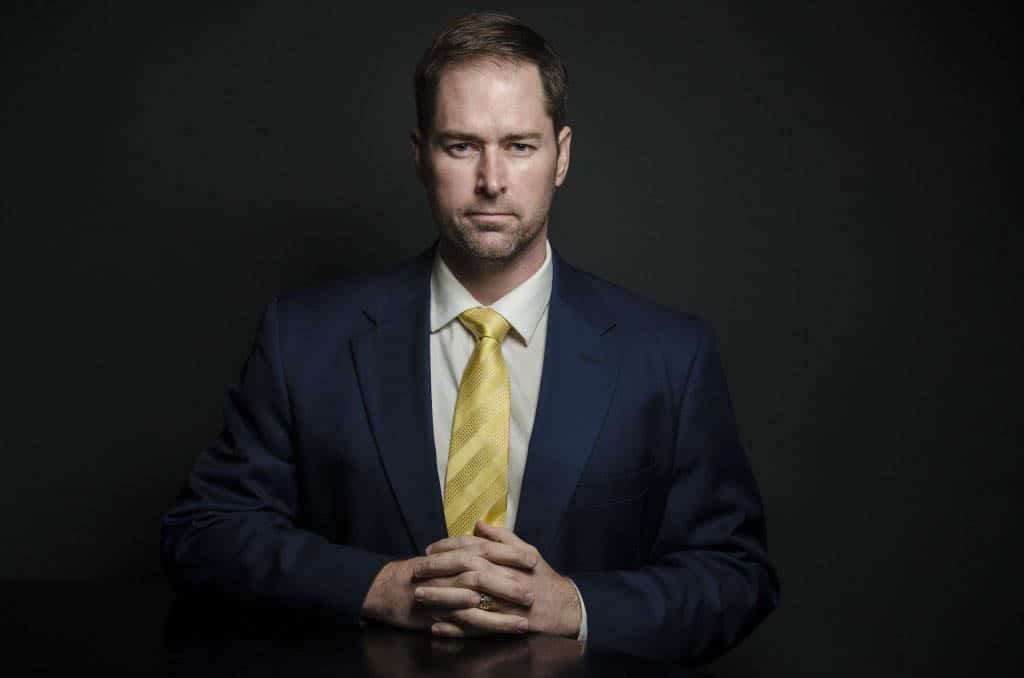Chapter 7 Bankruptcy Lawyers - Nick Davis Law
Common Questions About Chapter 7 BankruptcyFiling for Chapter 7 bankruptcy is a significant step, often accompanied by a range of questions and concerns. Nick Davis Law is here to provide clear, trusted answers. We’ve gathered the most common questions about Chapter 7 bankruptcy to help you make informed decisions and take control of your financial future
Serving Montgomery, Harris, Fort Bend, Brazos, Grimes, Waller, Walker & Surrounding Counties
Common Questions About Chapter 7 Bankruptcy: Your Guide to a Fresh Start in The Woodlands, Katy, Houston, College Station

Filing for Chapter 7 bankruptcy can be a lifeline for individuals overwhelmed by debt. But the concern many people have is whether they will lose everything, especially their home, car, or retirement savings. The good news is that Texas’s powerful bankruptcy exemptions allow you to protect many essential assets, including your primary residence, vehicles, and retirement accounts. At Nick Davis Law, we understand the importance of safeguarding what matters most, and we’re determined to help you maximize your protections while guiding you every step of the way.
Don’t wait until it’s too late to act. Contact Nick Davis Law today for a free consultation at (936) 262-7474.
Can Married Couples File for Chapter 7 Bankruptcy Jointly?
When you’re married and facing overwhelming debt, you may wonder whether you and your spouse can file for Chapter 7 bankruptcy together. The short answer is yes—married couples can file jointly, but it’s important to carefully consider whether that’s the best option for your unique financial situation.
Benefits of Filing Jointly:
-
Discharge Both Spouses’ Debts:
Filing together allows both spouses to eliminate unsecured debts like credit cards, medical bills, and personal loans, providing comprehensive relief for the household. -
Lower Costs:
A joint filing typically means you’ll only have to pay one set of legal fees and one filing fee, saving money and streamlining the process. -
Simplified Process:
By filing jointly, you consolidate both partners’ financial information into one case, making it easier to present a full picture to the court.
When It Might Be Better to File Separately:
-
Disproportionate Debt:
If one spouse carries most of the debt, it might be smarter for the other to file separately, preserving their credit rating and financial standing. -
Protecting One Spouse’s Credit:
In cases where one spouse has significantly better credit, filing separately can help protect that credit score from being impacted by bankruptcy.
Explore whether joint or separate filing is right for you and your spouse.
How Chapter 7 Bankruptcy Affects Cosigners and Joint Debts: Protecting Those You Care About
When you file for Chapter 7 bankruptcy, your personal liability on debts is discharged, but cosigners and co-borrowers may still be responsible for the debt. This is an important factor to consider if someone else has helped you by cosigning a loan or if you share debts with a spouse or business partner.
Cosigned Loans in Chapter 7:
- Cosigner Responsibility:
Even after your discharge, your cosigner remains responsible for the entire debt. Creditors can legally pursue the cosigner to recover the loan balance, which could strain your relationship. - Protecting Your Cosigner:
You may be able to reaffirm the debt—a legal agreement that keeps you responsible for the debt—ensuring the cosigner doesn’t shoulder the burden alone.
Joint Debts in Chapter 7:
- Joint Credit Cards and Loans:
If you have joint responsibility for a debt, such as credit cards or auto loans, filing for Chapter 7 will eliminate your liability, but creditors can still pursue the other party for payment.
Don’t wait until it’s too late to act. Contact Nick Davis Law Bankruptcy Relief Lawyers today for a free consultation at (936) 262-7474 and assistance in filing for Bankruptcy in The Woodlands, Houston, Katy, and College Station.
Chapter 7 Bankruptcy: Topics of Interest
OVERVIEW OF CHAPTER 7
COMMON QUESTIONS
CREDIT COUNSELING
341 MEETING
BENEFITS OF CHAPTER 7 BANKRUPTCY
CHAPTER 7 VS. CHAPTER 13
MEANS TEST & ELIGIBILITY FOR CHAPTER 7
FILING FOR CHAPTER 7 IN TEXAS
DEBTS DISCHARGED IN CHAPTER 7
PROTECTING ASSETS
TEXAS EXEMPTIONS
TEXAS SPECIFIC BANKRUPTCY
ROLE OF TRUSTEE
EMERGENCY BANKRUPTCY
IMPACT OF CHAPTER 7
LIFE AFTER CHAPTER 7
BANKRUPTCY LITIGATION
ADDITIONAL BANKRUPTCY AREAS
ALTERNATIVES TO BANKRUPTCY
CHAPTER 11 BANKRUPTCY
Here’s What You Can Expect
Will Filing for Chapter 7 Prevent Foreclosure? Understanding Your Options
If you’re facing foreclosure, you might be wondering if Chapter 7 bankruptcy can help you keep your home. While Chapter 7 can offer temporary relief through an automatic stay, it may not prevent foreclosure permanently.
How Chapter 7 Temporarily Stops Foreclosure:
- Automatic Stay Protection:
When you file for Chapter 7, an automatic stay immediately halts all creditor actions, including foreclosure proceedings. This can give you a temporary pause on foreclosure, but it may only last for the duration of the bankruptcy process (typically several months).
Long-Term Solutions for Avoiding Foreclosure:
- Surrendering the Property:
If you’re unable to keep up with mortgage payments, you may opt to surrender your home in the Chapter 7 process, discharging the debt but losing the home. - Reaffirming Your Mortgage:
If you want to stay in your home, you can reaffirm your mortgage, allowing you to keep the property and continue making payments without discharging the mortgage in bankruptcy. - Chapter 13 as an Alternative:
In some cases, Chapter 13 bankruptcy may be a better solution for saving your home, as it allows you to catch up on missed payments over a period of 3 to 5 years, without losing your property.
Learn more about how Chapter 7 bankruptcy can help stop foreclosure and explore additional options.
Understanding the Limits
How Often Can You File for Chapter 7 Bankruptcy?
Filing for Chapter 7 bankruptcy can provide major debt relief, but if financial hardship strikes again, you may be wondering how often you can file for Chapter 7. According to federal law, there is an 8-year waiting period between Chapter 7 filings.
The 8-Year Rule for Chapter 7:
- Waiting Period:
You must wait 8 years from the date of your previous Chapter 7 discharge before you can file again. This ensures that Chapter 7 bankruptcy isn’t used too frequently as a solution.
Options During the Waiting Period:
- Chapter 13 Bankruptcy:
If you encounter financial difficulties before the 8-year waiting period is up, you may still qualify for Chapter 13 bankruptcy, which allows for a structured repayment plan over 3 to 5 years, helping you manage debt while maintaining ownership of your assets.
Find out more about the rules for filing Chapter 7 and alternative options available to you.
FAQ
Frequently Asked Questions
Should I stop paying my bills before filing for Chapter 7 bankruptcy?
It depends. While it might seem logical to stop paying bills if you’re planning to file for bankruptcy, certain payments should still be made. For instance, if you want to keep your car or home, continuing to pay on secured debts like auto loans or mortgages may help prevent repossession or foreclosure. However, making large payments to creditors just before filing can be problematic, as the trustee may see it as preferential treatment toward certain creditors, and could try to reclaim those payments. It’s best to consult with your attorney before stopping payments to avoid complications.
Can I discharge debt if I've recently used credit cards before filing for Chapter 7?
If you’ve made significant charges on your credit cards just before filing for Chapter 7, especially for luxury items or cash advances, these debts may not be dischargeable. Creditors could challenge these charges as fraudulent if they believe you had no intention of repaying the debt. The bankruptcy court typically looks at charges made within 90 days before filing to determine if they were made in good faith. To avoid potential issues, consult with your attorney about recent spending and how it may affect your case.
Will Chapter 7 bankruptcy affect my divorce settlement or child support obligations?
While Chapter 7 bankruptcy can discharge many debts, it does not eliminate obligations related to alimony, child support, or divorce-related property settlements. These are considered priority debts, and you will be required to continue paying them even after your bankruptcy discharge. Additionally, if your divorce decree includes certain property settlement obligations, they may not be dischargeable under Chapter 7. You should inform your attorney if you’re going through or have recently gone through a divorce to ensure that your obligations are clear and handled properly.
Can I keep the tax refund I’m expecting if I file for Chapter 7 bankruptcy?
Your tax refund can be at risk if you file for Chapter 7, as it may be considered part of your bankruptcy estate. Whether or not you can keep it depends on when you file, the timing of the refund, and how much of it is protected by exemptions. If you file before receiving the refund, the trustee may claim it to pay creditors. However, some states, including Texas, offer exemptions that might allow you to protect some or all of the refund. Timing your bankruptcy filing and discussing exemption strategies with your attorney can help preserve as much of your refund as possible.
What if I forget to include a debt in my Chapter 7 filing?
It’s critical to list all debts when filing for Chapter 7 bankruptcy. If you forget to include a debt, it may not be discharged, meaning you could still be responsible for paying it. In most cases, if the oversight is discovered early, you can amend your filing to include the omitted debt, but it’s always better to be thorough from the start. Keeping a detailed list of all creditors and debts before filing is essential, and working with an experienced attorney can help ensure nothing is overlooked.
Can I sell or transfer assets before filing for Chapter 7 to protect them?
Transferring or selling assets just before filing for Chapter 7 can lead to serious problems. If the bankruptcy trustee believes that you transferred property to hide it from creditors, the transfer could be reversed, and you might lose the asset. Worse, it could be seen as fraudulent behavior, potentially resulting in the denial of your bankruptcy discharge. If you’re concerned about protecting certain assets, it’s better to work with an attorney to explore legal options like exemptions, rather than taking risky steps that could harm your case.
Will filing for Chapter 7 bankruptcy affect my spouse if I file individually?
If you file for Chapter 7 bankruptcy individually, your spouse’s credit will not be directly affected. However, if you share joint debts, the creditors can still pursue your spouse for full payment on those debts, even if your obligation is discharged. It’s important to assess whether you and your spouse are better off filing jointly or if filing individually makes more sense. An attorney can help analyze your situation and provide advice on how to protect both parties during the process.
Can I choose to keep some debts out of my Chapter 7 bankruptcy?
Once you file for Chapter 7 bankruptcy, you must list all of your debts—there’s no option to selectively exclude certain debts. However, if there are debts you wish to keep, such as a car loan or mortgage, you may have the option to “reaffirm” those debts. By reaffirming, you agree to continue making payments in exchange for keeping the collateral (e.g., the car or house). It’s important to weigh the risks, as reaffirming a debt means you remain liable for it, even after the bankruptcy.
What happens to my business if I file for Chapter 7 bankruptcy personally?
If you own a small business or are self-employed, filing for Chapter 7 bankruptcy can impact your business, depending on how it’s structured. If the business is a sole proprietorship, its assets could be considered part of your personal bankruptcy estate, meaning they could be sold to pay creditors. However, if the business is a separate legal entity, like an LLC or corporation, its assets may be protected. That said, your personal guarantees on business debts could still affect your bankruptcy case. Consulting an attorney with experience in both personal and business bankruptcy is crucial for understanding your options.
Can Chapter 7 bankruptcy impact my professional licenses or certifications?
Filing for Chapter 7 bankruptcy generally does not affect your professional licenses or certifications. Most licensing boards don’t penalize individuals for financial difficulties or bankruptcy filings. However, if you work in a field that requires fiduciary responsibility (like finance or law), or if you’re a public figure, there may be some scrutiny. It’s important to check with your professional board or employer to understand any specific rules related to your field, and to address any concerns upfront.
From the Blog
Recent Articles
Take Control of Your Financial Future Today
FLEXIBLE APPOINTMENTS | PAYMENT PLANS
At Nick Davis Law, we understand that bankruptcy is a complex and emotional process. Whether you’re an individual facing overwhelming personal debt or a business looking to restructure, we’re determined to guide you through every step. Bankruptcy is not the end—it’s the beginning of a new, more secure financial future.
Get a Free Consultation Now
Contact Nick Davis Law, serving The Woodlands, Katy, Houston, College Station and surrounding cities and counties. Take control of your financial future today—call us at (936) 262-7474. Our Montgomery, Harris, Fort Bend, Walker, Brazos, Grimes, Waller County Bankruptcy Lawyers regularly offer After-Hour & Weekend Phone and Virtual Consults and Payment Plans.
Contact us
Nick Davis Law
26418 Oak Ridge Dr.
The Woodlands, TX 77380
(936) 262-7474
The Woodlands, Texas
26418 Oak Ridge Dr.
The Woodlands, TX 77380
(936) 262-7474
Appointments Only
Bryan | College Station, Texas
750 William D. Fitch Pkwy, Ste 210
College Station, TX 778455
(979) 417-2220
Business Hours
Mon - Fri 8:00 am to 6:00 pm
Our Mission
The Trusted Family, Divorce, Bankruptcy, CPS, and Small Business Lawyers at Nick Davis Law are dedicated to providing the best and most efficient representation possible to our clients to achieve their goals quickly and cost effectively. Nick Davis Law maintain offices in The Woodlands, Katy, Texas and Bryan | College Station and serve all of Montgomery County, Brazos County, Walker County, Waller County, Grimes County, Washington County, Burleson County, San Jacinto County, Liberty County, Harris County, and surrounding counties.

 Nick Davis Law is a firm dedicated to helping individuals with all their family law needs and serves Montgomery, Harris, Waller, Grimes, Walker, Brazos, Washington, Burleson, Fort Bend and surrounding counties.
Nick Davis Law is a firm dedicated to helping individuals with all their family law needs and serves Montgomery, Harris, Waller, Grimes, Walker, Brazos, Washington, Burleson, Fort Bend and surrounding counties. 
